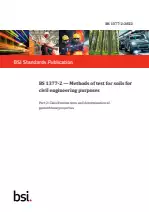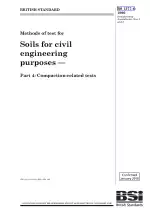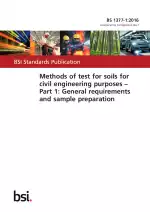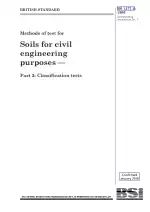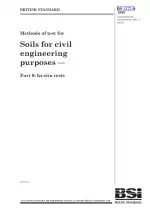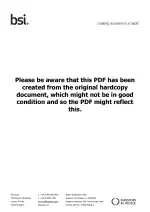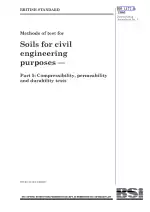Methods of test for soils for civil engineering purposes - Classification tests and determination of geotechnical properties
Also Known As:
BS 1377-2:2022 is a part of the BS 1377 series of standards that focuses on the classification tests and determination of geotechnical properties of soils for civil engineering purposes. The standard provides methods of testing to determine the characteristics of the soil, with the aim of ensuring the stability and suitability of civil engineering structures.
BS 1377-2 is applicable to various stakeholders in the construction industry, including civil engineers, ground engineering consultants, construction contractors, and clients, among others. It is useful for ground investigation specifiers, geotechnical advisers, and local authority engineers and planners. The standard is designed to support best industrial practices and increase the efficiency of construction projects.
By using BS 1377-2, one can conduct laboratory tests to classify soils, determine their compaction characteristics, permeability, and compressibility, as well as evaluate their shear strength in terms of both total and effective stresses. This information is crucial for making informed decisions in the design and construction of civil engineering structures. The standard also contributes to achieving UN Sustainable Development Goal 9 on industry, innovation and infrastructure and Goal 12 on responsible consumption and production.
| Descriptors | Test equipment, Laboratory testing, Plastic limit (soils), Mathematical calculations, Soil-testing equipment, Specimen preparation, Liquid limit (soils), Water content determination, Testing conditions, Soil testing, Density measurement, Relative density, Soil classification tests, Shrinkage tests, Particle size distribution, Calibration, Sedimentation techniques |
| ICS Codes | 93.020 - Earthworks. Excavations. Foundation construction. Underground works |
| Language(s) | English |
| ISBN | 978 0 539 15710 9 |
| File Size | 10.4 MB |

